Building raised garden beds is the first step towards a thriving, organized garden. The next, equally important step is deciding how to arrange them. The layout of your raised beds is the “bones” of your garden—it determines the flow, functionality, and overall aesthetic of your entire outdoor space. A thoughtful design can transform a simple vegetable patch into a beautiful landscape feature.
Whether you’re working with a large, open yard or a small, compact corner, there are endless creative possibilities. To help you design a space that is both highly productive and a joy to work in, here are seven brilliant raised garden bed layout ideas.
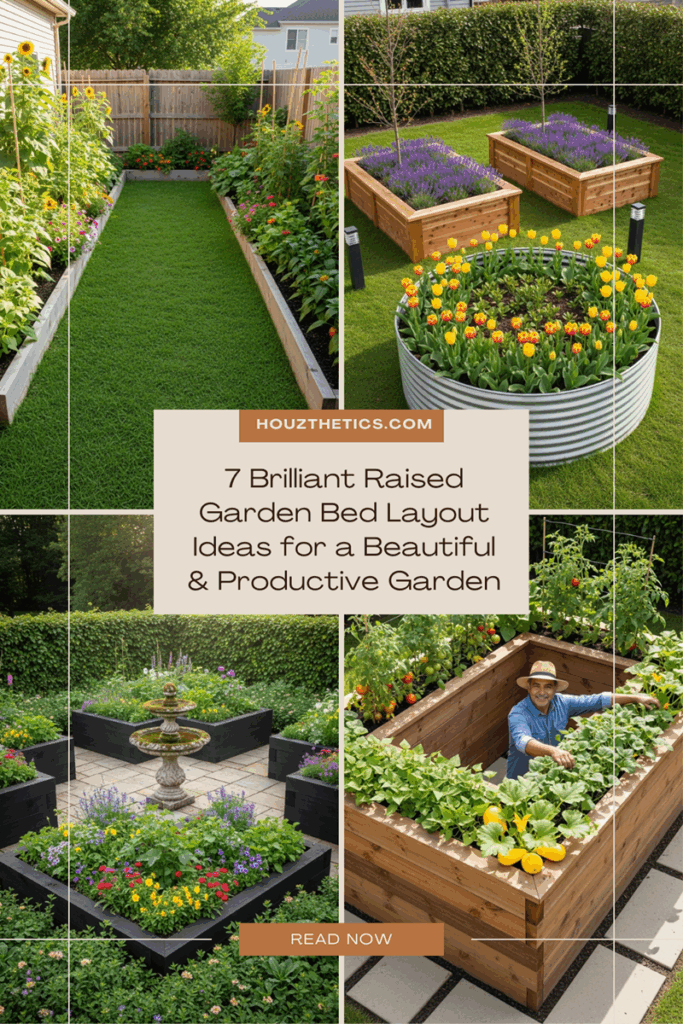
The Blueprint for Success: Layout Fundamentals
Before you place your first bed, consider these crucial planning points:
- Pathways are Key: Ensure your paths are wide enough for easy access with tools and a wheelbarrow—typically at least 2-3 feet wide.
- Sun Mapping: Orient your beds to give sun-loving plants the maximum amount of light, usually in a north-to-south direction if possible.
- Water Access: Consider how you will get water to each bed. Proximity to a hose spigot is a practical consideration for your raised garden bed layout ideas.
7 Brilliant Raised Garden Bed Layout Ideas
Explore these seven distinct concepts to find the perfect arrangement for your yard.
1. The Classic Formal or Grid Layout
This is the most common and straightforward design. It involves arranging rectangular or square beds in a simple, orderly grid pattern, with straight, uniform paths in between (e.g., a 2×2 or 2×3 grid). This layout is highly efficient for crop rotation, easy to plan, and creates a clean, classic, and organized look, making it a timeless choice for any kitchen garden.
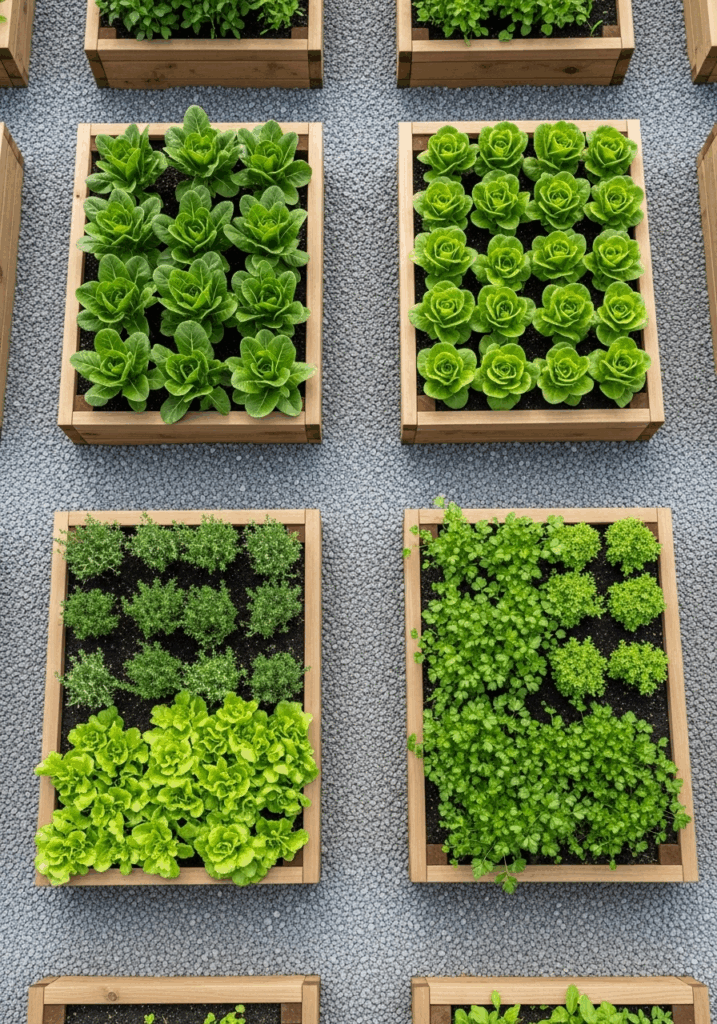
2. The Ergonomic U-Shaped or Keyhole Bed
For maximizing growing space and minimizing pathways, a U-shaped layout is genius. A large U-shaped bed allows you to stand in the central opening and easily reach every part of the garden without ever stepping on the soil. A “keyhole” bed is a variation of this, often a circular bed with a wedge-shaped cutout for access. These are very smart raised garden bed layout ideas for gardeners who want to maximize their planting area.
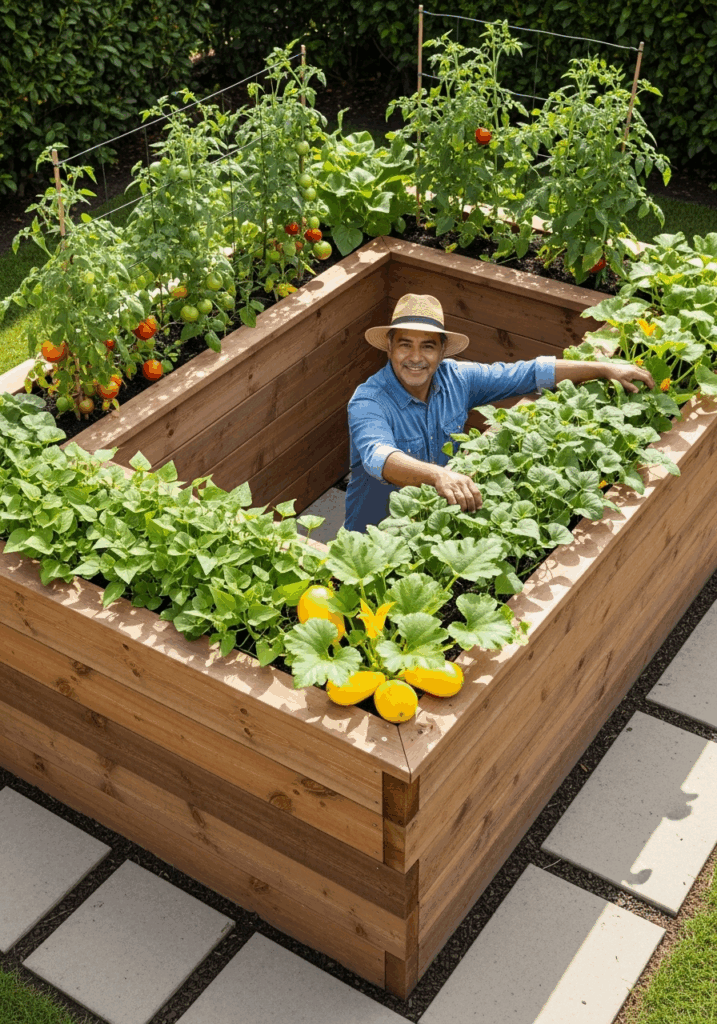
3. The Central Feature Layout (Potager Style)
Create a stunning focal point by arranging your garden beds around a central feature. This is a hallmark of the classic French “potager” or kitchen garden. Place four L-shaped beds to form a square, leaving an open space in the middle for a birdbath, a small fountain, a sundial, or a beautiful urn planted with flowers. This layout elevates a simple vegetable garden into an elegant landscape design.
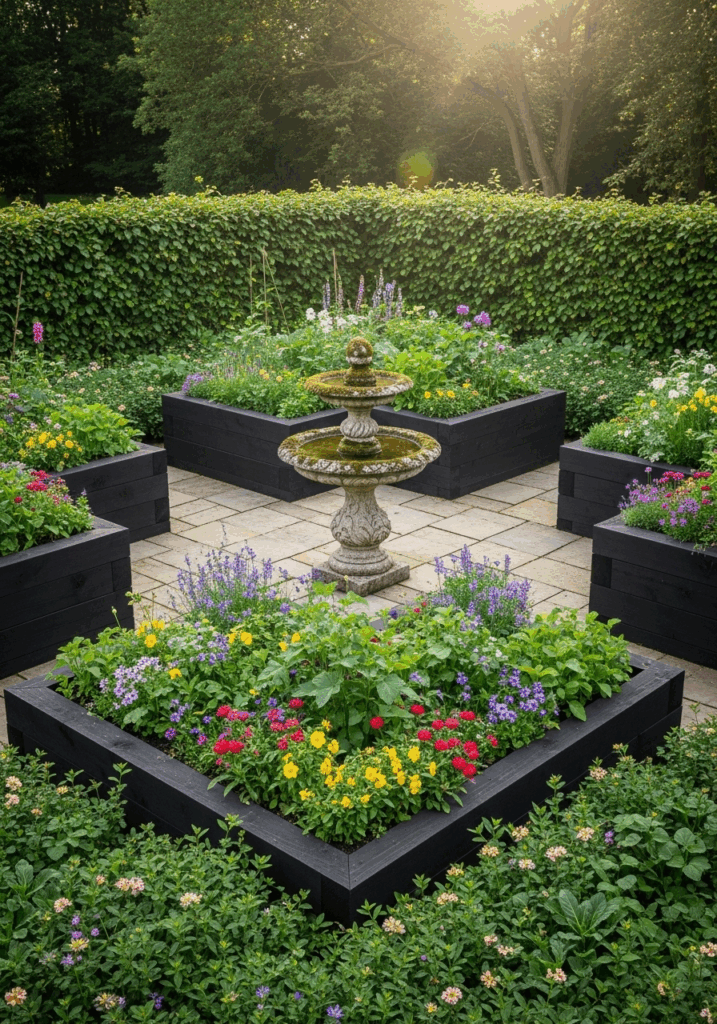
4. The Spoke and Wheel or “Pizza Garden” Layout
For a dynamic, circular design, consider the spoke and wheel layout. This involves creating a central hub (either a small circular bed or just an open point) and arranging triangular, wedge-shaped beds that radiate outwards, like slices of a pizza. This is a fun and visually interesting layout, perfect for planting different categories of herbs or vegetables in each “slice.”
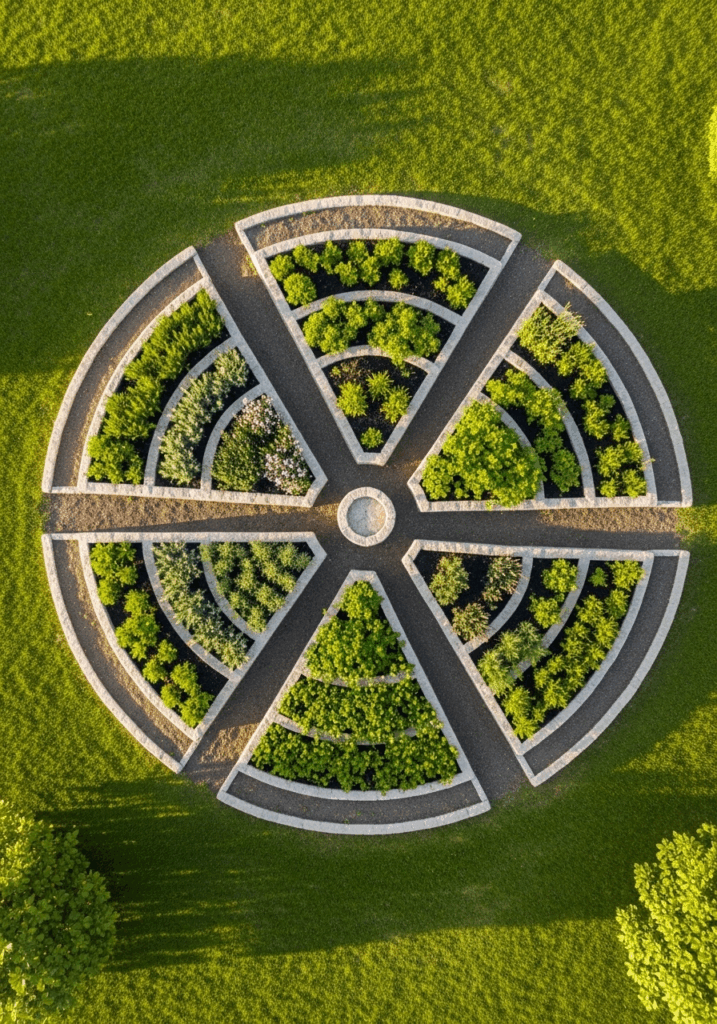
5. The Space-Saving Perimeter Layout
If you have a small yard and want to preserve as much open lawn space as possible, a perimeter layout is the perfect solution. This involves building long, narrow raised beds that run along the edges of your property—against fences, walls, or the border of a deck or patio. This approach neatly frames your yard while creating a significant amount of growing space.
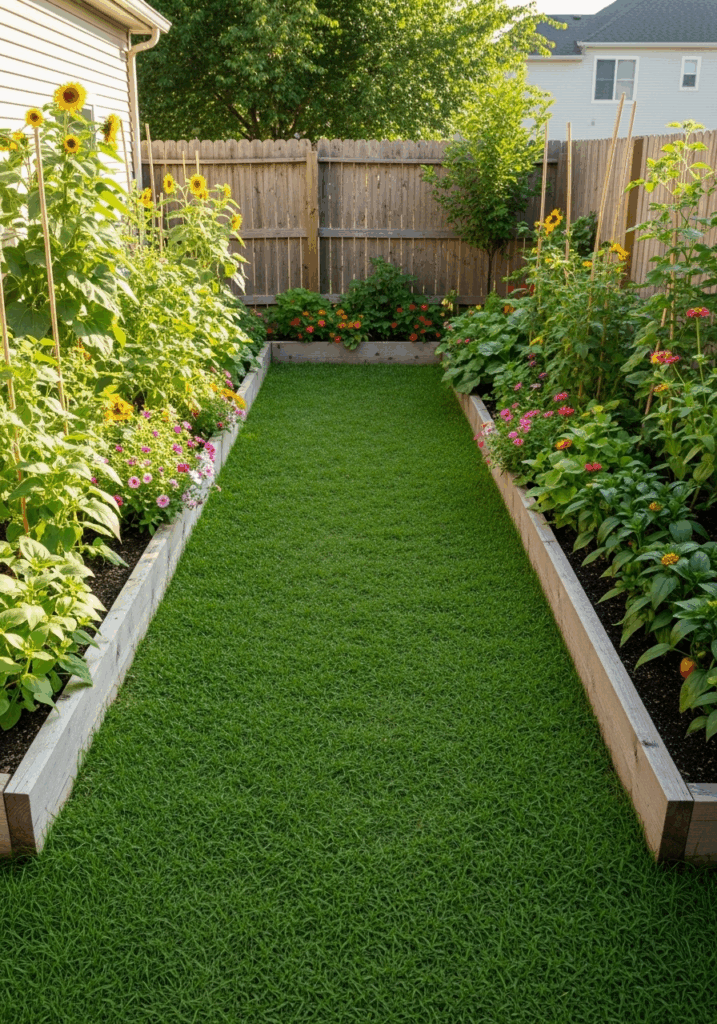
6. The Eclectic Mixed Materials Layout
Add visual interest and a custom feel to your garden by creating a layout that incorporates beds made from different materials. You don’t have to stick to just one! For example, a formal layout could feature two classic cedar beds paired with a modern, round corrugated metal bed in the center. Mixing materials like wood, metal, and stone can add wonderful texture and personality to your overall garden design.
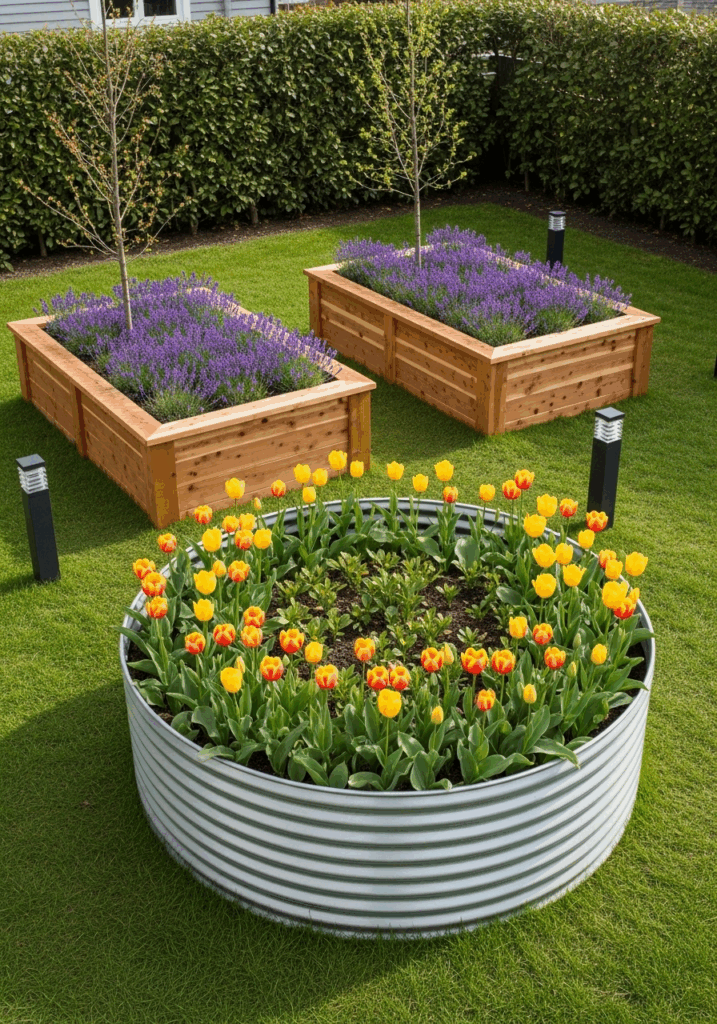
7. The Immersive Maze or Labyrinth Layout
For those with a larger space and a sense of playfulness, a labyrinth layout can be a magical choice. This involves arranging your raised beds in a pattern that creates a single, continuous path that winds through the garden. It encourages a mindful, meandering walk through your plantings and turns the garden itself into an immersive experience. This is one of the most creative raised garden bed layout ideas.
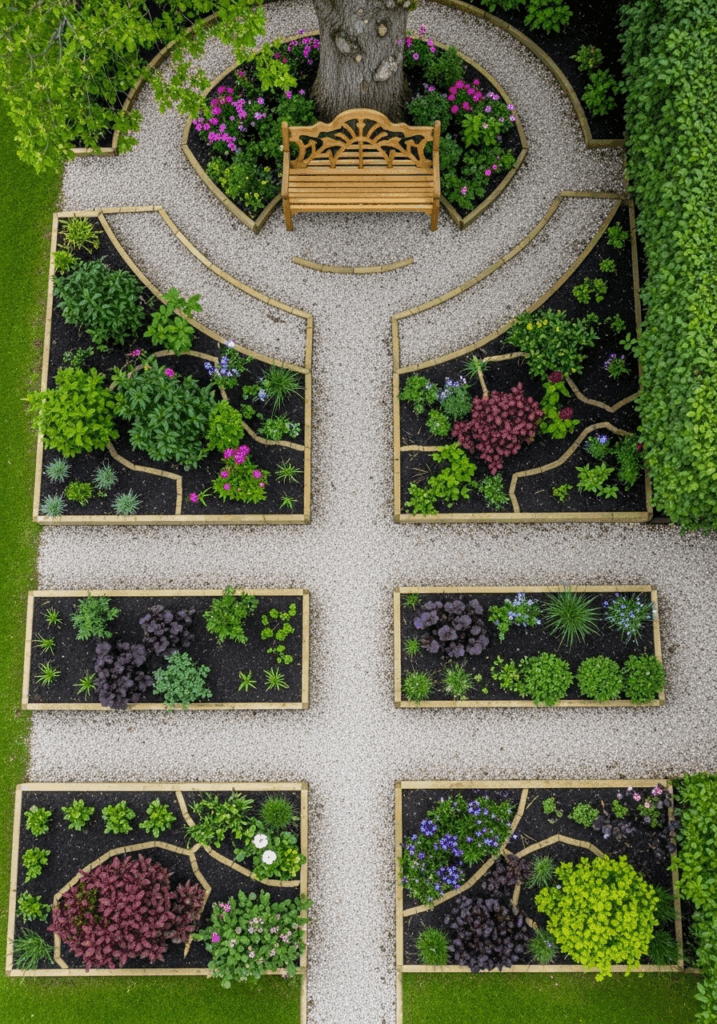
Conclusion: Designing Your Dream Garden
The layout of your garden is just as important as the plants you choose to grow. A thoughtful design can improve productivity, make maintenance easier, and create a space of immense beauty. By exploring these raised garden bed layout ideas, you can design a garden that is not only bountiful but also a true extension of your home and personal style.
